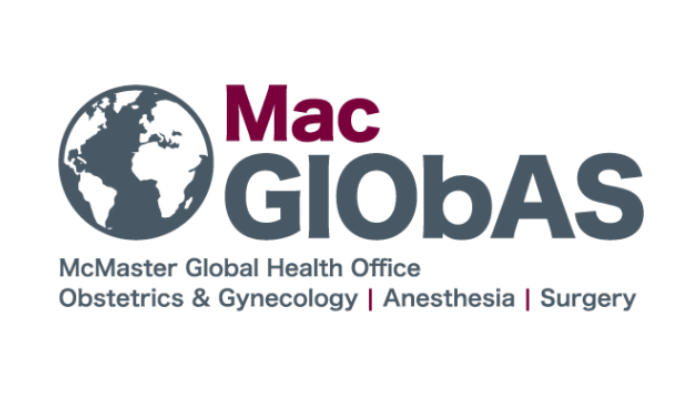Strategic Priorities
A local hub for global engagement. Located within the Global Health Office, MacGlObAS will be the hub for networking, resources, and promotion of Global Surgery activities to students, faculty, and community supporters.
Innovation in Global Surgery scholarship. MacGlObAS will explore new ways to support local and global partner faculty and postgraduate trainees in their academic development.
Mentoring future academic leaders. Faculty and trainees interested in making Global Surgery part of their career will be supported by experienced faculty and build on McMaster’s existing expertise.
Support for interdisciplinary research and capacity building development projects. MacGlObAS will encourage interdisciplinary global research projects within the Faculty of Health Sciences and broader university.
Information Box Group
Member Departments
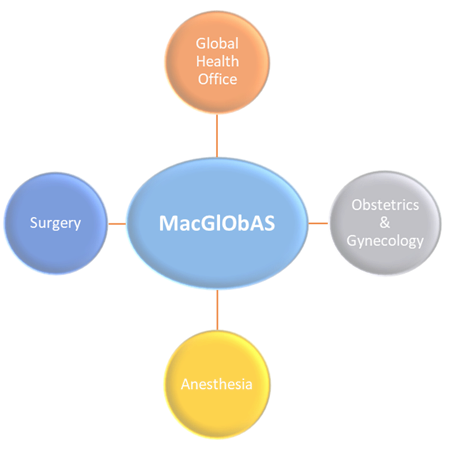
MacGlObAs is comprised of a partnership between the Global Health Office, the Department of Obstetrics & Gynecology, the Department of Anesthesia, and the Department of Surgery.
Organizational Structure
MacGlObAS’s organizational structure is composed of the Advisory Board, Executive Committee, Director (appointed from the Executive Committee), and Coordinator located in the Global Health Office.
-
Advisory Board meets annually, providing strategic guidance and helping to promote activities of MacGlobas and its members across the departments, university, and internationally. The board is composed of the Associate VP Global Health, Department Chairs, Chair of St. Joseph’s International Outreach Program, faculty and resident representatives from each department, and invited representatives from allied health and low and middle income countries.
-
Executive Committee provides operational oversight, meeting quarterly to implement the collaborations overall goal – including discussion of new issues in global surgical care, identification of new educational and research opportunities for residents and faculty, and planning of learning and advocacy activities at the university. The Executive Committee members sit on the Advisory Board and report to their respective Department Chairs.
-
Director is a member selected from the Executive Committee and appointed by the three Department Chairs. The Director provides day-to-day guidance of MacGlObAS activities and supervising the activities of the Coordinator. The Director reports to the Executive Committee at their quarterly meeting, and represents MacGlObAS at official events and meetings with other departments and outside organizations.
-
Coordinator is the main point of contact for MacGlObAS, with an office located inside the Global Health Office. The Coordinator is responsible for managing communications both internally and externally, event planning, maintaining a database of members and resources for residents and faculty. Visit our contact us page to connect with the MacGlObAS coordinator.
Information Box Group
Organizational Partners
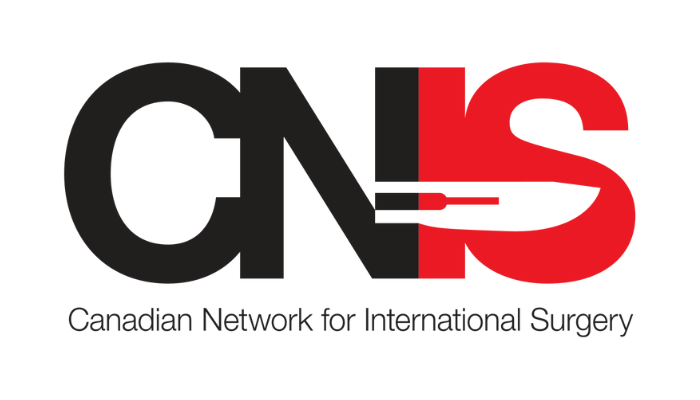
The Canadian Network for International Surgery (CNIS) is committed to empowering low-income countries to create an environment where the risk from injuries is minimal and that all people receive adequate healthcare. CNIS believes in sharing knowledge, expertise and experience to promote lasting and sustainable improvements in health and safety in the developing world.
CNIS’s mission is to improve maternal health, increase safety, and build local capacity in low-income countries by:
- Creating Surgical Courses
- Train Domestically
- Transfer Skills
Where CNIS Works
CNIS has implemented life-saving courses in 8 African countries, including Tanzania, Ethiopia, Nigeria, Rwanda and Uganda, as well as Guyana and Haiti in the Caribbean.
Find out more information on the CNIS website.
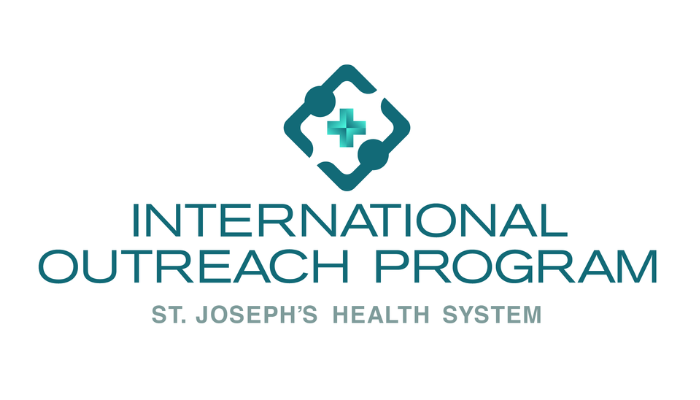
The International Outreach Program (IOP) of St. Joseph’s Health System saves lives in developing countries by training their doctors.
A non-profit organization that partners with universities, medical schools and teaching hospitals in countries that need more doctors, particularly more specialists and sub-specialists.
Through IOP’s partnership with McMaster University, they give medical students and doctors the academic knowledge and clinical skills they need to prevent illness, restore health, save lives—and train other doctors to do the same. IOP trainees also acquire leadership, communication, negotiation and teaching skills that help them generate lasting change in their communities and countries.
MacGlObAS partners with the St. Joseph IOP to help identify, select, coordinate, and support international trainees coming to train at McMaster University and St. Joseph’s Health System.
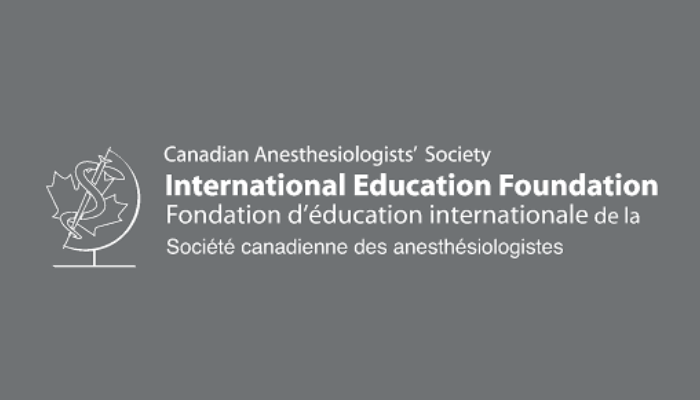
The Canadian Anesthesiologists’ Society International Education Fund (CASIEF). Their philosophy is to work with anesthesia providers in low and middle-income countries (LMIC) to develop self-sustaining programs appropriate to their own needs. Consultations and collaborations with ministries of health, anesthesia providers, anesthesia societies, and local training institutions are key to building successful partnerships.
With partners – including the University of Rwanda, the World Federation of Societies of Anaesthesiologists, the American Society of Anesthesiologists, the Canadian Network for International Surgery, Dalhousie University, Queens University, McMaster University, University of Toronto, Western University, and Global Affairs Canada – we collaborate in low resource settings to build capacity for safe, sustainable anesthesia and perioperative care.
CASIEF currently focuses on collaborative international partnerships in:
- Rwanda
- Guyana
- Ethiopia
- Burkina Faso

